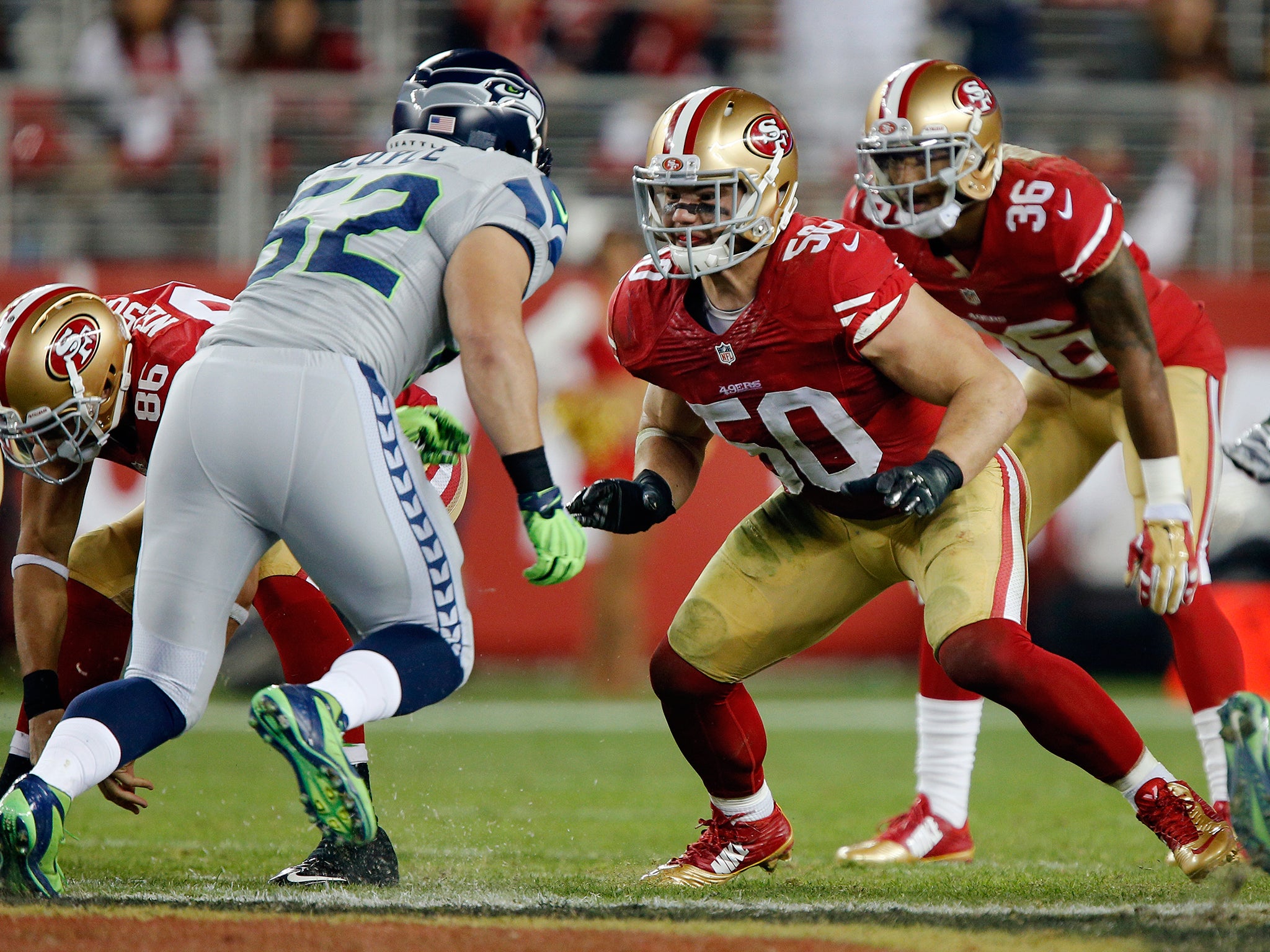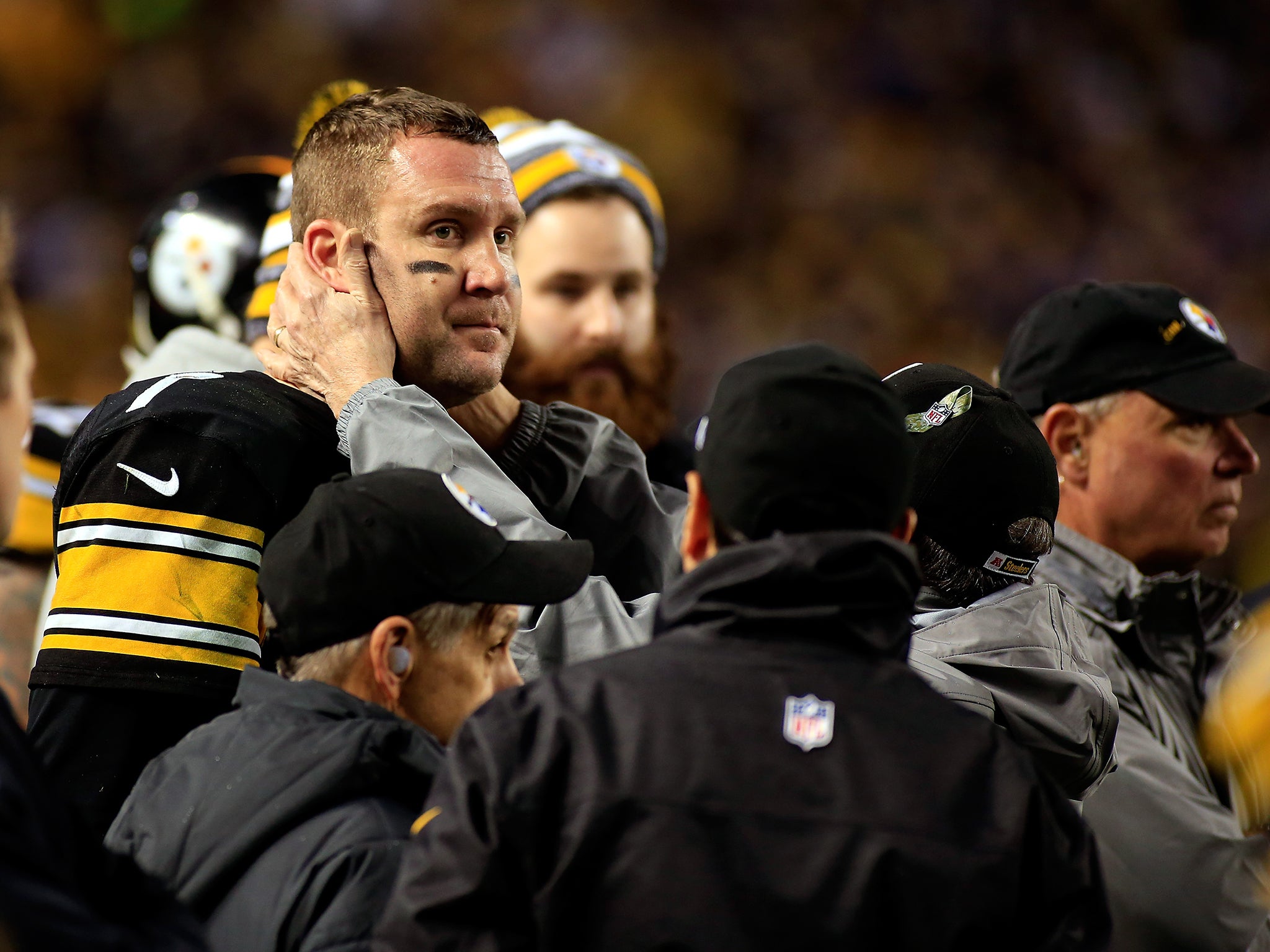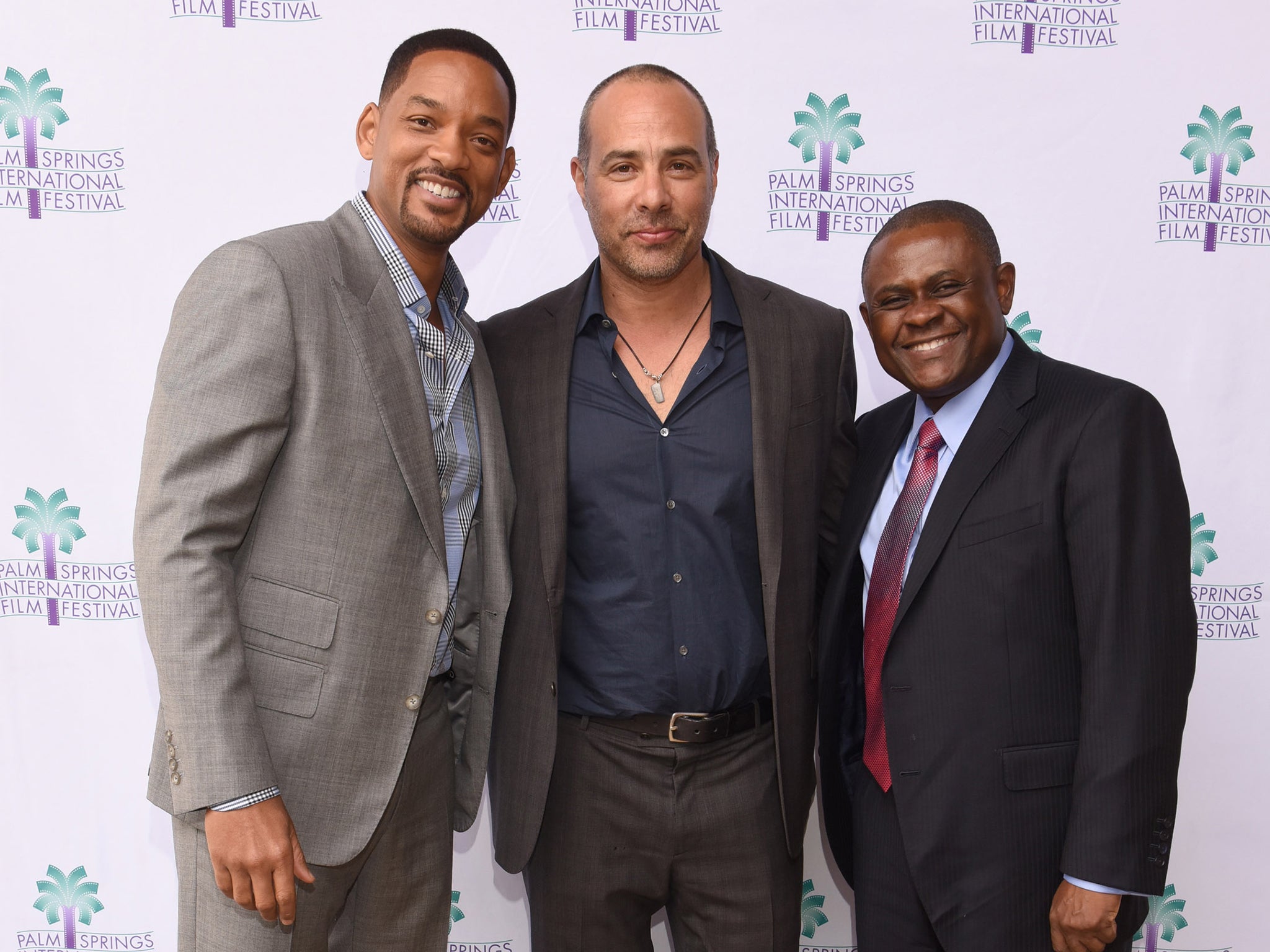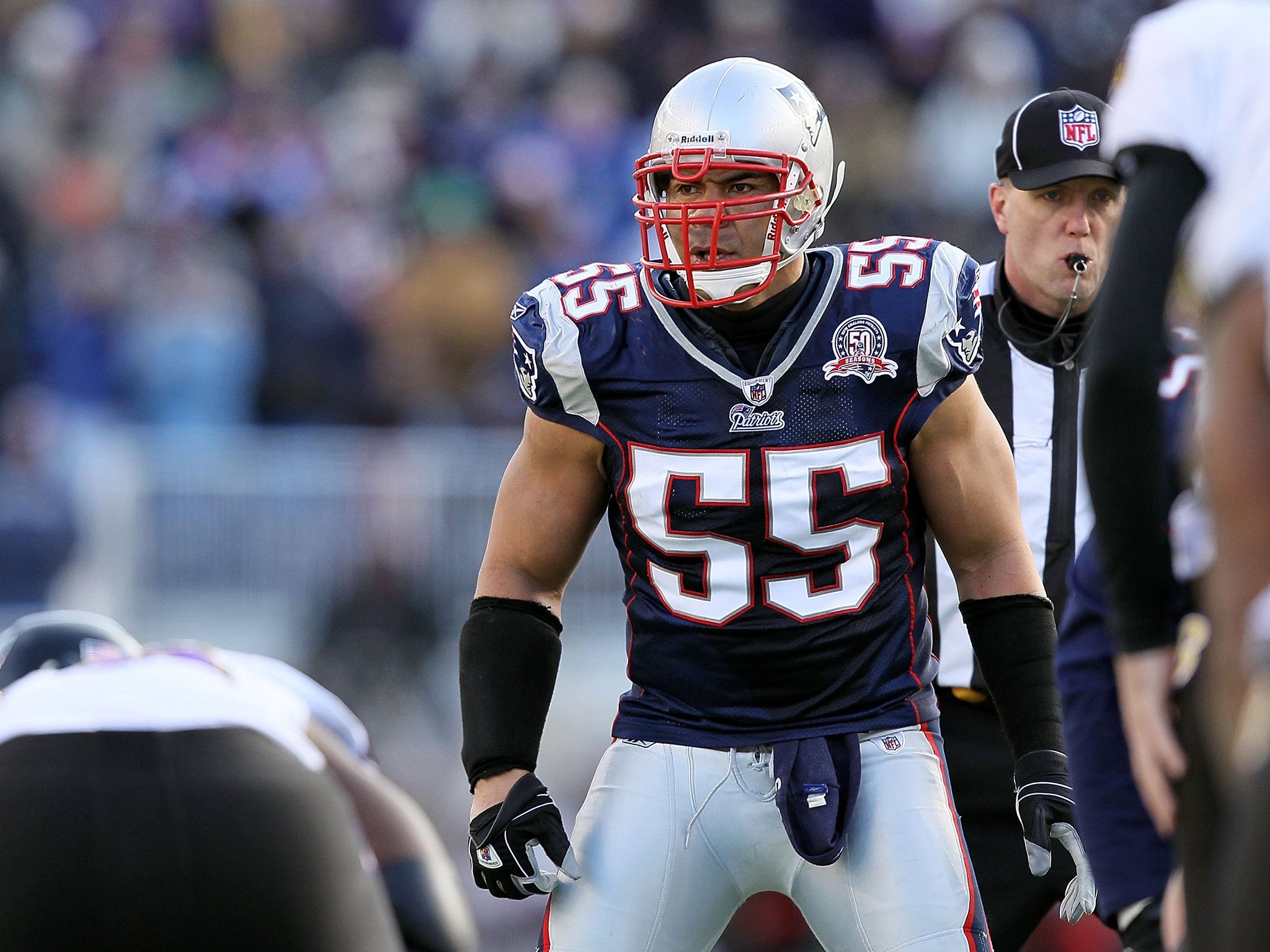Concussion in the NFL: The dying game
For millions of Americans this is the best part of the sporting year as the NFL reaches its climax. But this January the excitement has been undermined by a new Hollywood film that tells how the sport is literally killing those who play it. By Rupert Cornwell in Washington

Your support helps us to tell the story
From reproductive rights to climate change to Big Tech, The Independent is on the ground when the story is developing. Whether it's investigating the financials of Elon Musk's pro-Trump PAC or producing our latest documentary, 'The A Word', which shines a light on the American women fighting for reproductive rights, we know how important it is to parse out the facts from the messaging.
At such a critical moment in US history, we need reporters on the ground. Your donation allows us to keep sending journalists to speak to both sides of the story.
The Independent is trusted by Americans across the entire political spectrum. And unlike many other quality news outlets, we choose not to lock Americans out of our reporting and analysis with paywalls. We believe quality journalism should be available to everyone, paid for by those who can afford it.
Your support makes all the difference.It was the autopsy that changed a sport. “Iron” Mike Webster was the star offensive lineman – perhaps the most violent position in a violent sport – for the Pittsburgh Steelers when the Steelers ruled the National Football League, winning four Super Bowls between 1974 and 1979. But in retirement his life fell apart.
On 24 September 2002 Webster died penniless, broken and semi-deranged, and thus begins the movie Concussion, which has just opened here in the US. His autopsy was assigned to a pathologist called Bennet Omalu at the Pittsburgh coroner’s office.
Omalu was a Nigerian, who knew next to nothing of American football and of Webster’s legendary status within it. But he was baffled that a man of just 50 could have met so wretched an end. Omalu turned to Webster’s brain for an answer. Poring over slides of tissue, he found it.
Webster was afflicted with a condition suffered by far older patients with Alzheimer’s Disease. It was called Chronic Traumatic Encephalopathy, or CTE, caused by repeated blows to the head. During his football career, from high school to university to the NFL, Webster, it has been estimated, went through the equivalent of 25,000 car crashes.

Since that autopsy, some 100 former NFL players have been posthumously diagnosed with CTE – a fact that even a sport whose thunderous collisions and bone-crunching hits are central to its appeal cannot dismiss.
To be sure, as Concussion grippingly demonstrates, the NFL long tried to dismiss it. They demanded that Omalu withdraw his findings, and produced their own studies concluding that football was among the safest trades on earth. A $10 billion-a-year industry wasn’t going to be emasculated by some do-good immigrant doctor. But the weight of evidence, including evidence the that NFL knew the dangers of the sport and concealed them from their players, was overwhelming.
Concussion may not be the greatest sports movie ever made. “Based on a true story,” the credits proclaim; in other words, various facts have been adjusted and whole scenes invented, in the name of “creative licence”. A superfluous love story is woven into the plot, so that Omalu can be depicted as that Hollywood stereotype, the reluctant hero searching for the American Dream, a David unwittingly drawn into battle with Goliath. “I’m the wrong person to have discovered this,” Omalu says at one point.
There have been suggestions, too, that scenes in the movie were toned down under pressure from the NFL. Nor does it break new ground. The case against the NFL was more fully set out in the devastating 2013 public television documentary League of Denial. Documentaries, though, are one thing. When it comes to making a point, movies starring the likes of Will Smith, as Omalu, aiming for the heart as well as the head, are quite another.
Concussion hammers home the plight of the players, once household names, who descend into the dark vortex of CTE. Above all, however, it conveys the sheer might of the NFL, that $10bn sporting and entertainment colossus.
“You’re fighting a corporation that owns a day of the week,” Omalu is warned in the movie.
Indeed, the League could be said to own not just the Sundays of the regular season, but the entire month of January too, as the play-offs unfurl, culminating in that modern American pagan festival in the depths of winter, the Super Bowl. The conceit of Concussion is to have arranged its release to challenge this bread and circuses carnival – just as Omalu challenged the NFL a decade ago.
Will it succeed? Many players who have seen the film have been shaken to the core. Some, like Domonique Foxworth, seven years in the NFL and a former president of their Players Association, have spoken of the malign shadow cast by CTE, how “things that occur normally in all people’s lives – like forgetting a name or where the car is parked, getting upset with a spouse, or having difficulty controlling an impulse,” become for an ex-player a premonition of physical and mental destruction.

Willie Gault, for 10 years a wide receiver with the Chicago Bears and Oakland Raiders and so fast he raced with Calvin Smith and Carl Lewis to break world sprint relay records in the 1980s, goes further still. “Every single football player in this country – NFL, college, high school, youth – needs to see this movie,” he told Sports Illustrated magazine. “If I had seen it while I was a player, I think I still would have played football, but I would have played it differently.”
Most moving was Keith McCants, six years an NFL linebacker, who also attended a preview showing arranged by the magazine. “This touched my soul. I watch this movie and I know we were paid to hurt people. We were paid to give concussions. If we knew that we were killing people, I would have never put on the jersey.”
That, too, was why Chris Borland (above) , a hugely talented rookie with the San Francisco 49ers, abandoned a lucrative career last March at the age of just 24. “If there were no possibility of brain damage,” Borland said at the time, “I’d still be playing.”
Whether Roger Goodell, the NFL commissioner, has bothered to see Concussion is another matter. Make no mistake: whatever its producers and its stars maintain, this is an anti-NFL movie. America’s richest and most powerful sports organisation comes across as an athletic version of Big Tobacco, knowingly concealing the dangers of its product behind junk science.
Goodell himself has provided no answer, while the NFL have reacted mainly by not reacting. “We’re not focused on a movie, we’re focused on continuing to make progress [in reducing concussions],” is the commissioner’s sole public comment on the issue. Which is fair enough – why distract attention from the playoffs? And the movie is about the past. Omalu’s findings are history, and since then much has happened.
The NFL have agreed a $1bn settlement to a lawsuit brought by 4,500 former players claiming the League knowingly hid the dangers of head trauma – although 94 of them are still appealing on the grounds it does not go far enough, given that even the NFL now reckon that of 20,000 retired players, some 6,000 will suffer from some form of mental illness.
Lethal helmet-to-helmet hits, meanwhile, have been outlawed, concussion protocols have been tightened to ensure prompt and impartial medical assessment of possibly concussed players, while the search for the magic helmet continues.

Not least, there are signs that the game’s hypermacho ethos, its unwritten code of “play through any pain”, is not as powerful as it was. If a player who, as they say, has “had his bell rung” feels he has to leave the field, he can now do so without being regarded as a terminal sissy.
Concussion’s real service is to make the truth accessible. Parents whose kids play American football probably don’t read studies in learned medical journals, or lengthy articles in the New York Times. But they do go to movies, especially ones with megastars like Will Smith.
To be sure, the immediate impact is pretty small. On its opening Christmas weekend, Concussion took in around $11m, translating to maybe 1.4m tickets. Compare that with the 22m or so who week in, week out tune in to NBC’s Sunday Night Football, the most-watched programme on US network television.
Even so, the ultimate fate of America’s version of football lies with those same parents. If they decide the game is too dangerous for their children, then the supply of NFL players from high school and college will eventually dry up. Pro football, like boxing before it, will slowly wither on the vine. For the moment, though, the NFL vine is bursting with the luscious grapes of blockbuster ratings, multimillion-dollar salaries and a seat at the summit of the national entertainment industry.
And so for a while it will remain, and even Concussion admits as much. In the final scene Omalu, by now moved to California and having just turned down the offer of a top medical job in Washington, pulls his car over to watch a school football practice. Padded up and helmeted like their professional heroes, the kids smash into each other.
Can a single movie bring about the downfall of America’s game? One doubts it. Heck, the playoffs are on TV today.
Join our commenting forum
Join thought-provoking conversations, follow other Independent readers and see their replies
Comments